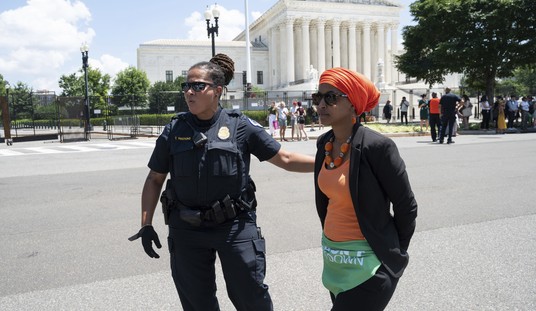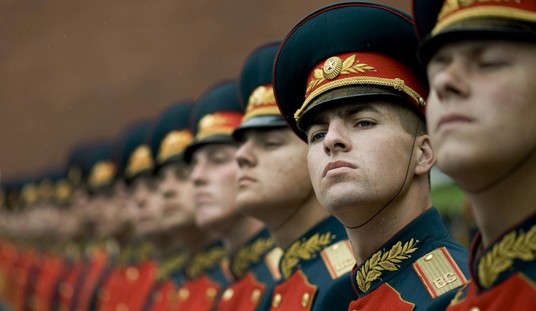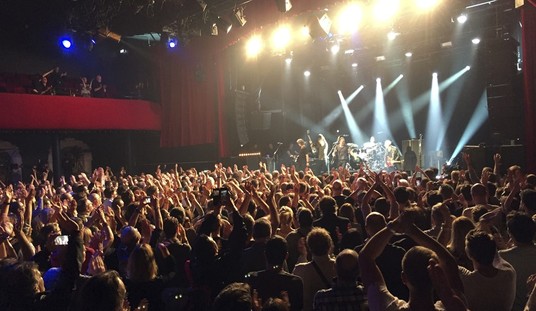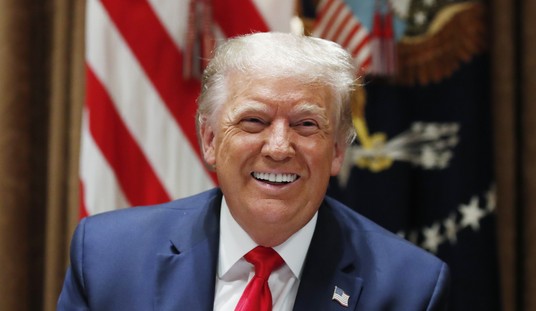
The Winter Olympics have not even been in full swing for a week and already the Olympiad has been mired in political tumult. In just a few days we have witnessed Shani Davis declaring his losing the flag-bearer honor to a coin toss was a racist act, gay athletes taking a militant stance regarding their orientation, and of course our national media embarrassingly playing the role of cheerleader for the oppressive North Korean government. But there is a refreshing story that carries import and yet is not burdened with deep political prolix.
Jordan Greenway, who plays for the Boston University Terriers, is poised to take the ice on February 14 to skate with the USA Men’s Hockey team. It is a lifetime opportunity, one that he had in mind for some time — but one he expected to become open to him many years down the road. As some significant changes were made to professional availability for the Olympics Greenway’s opportunity was fast-tracked and, as a result, he is making history.
When Team USA faces off against Slovenia on Wednesday in a qualifying round matchup as Jordan climbs over the boards it will be the first time a black skater has taken the ice in the Olympics for the men’s squad. Greenway has been honored and and flattered by the distinction, and he recognizes the gravity of the historical event. One thing he has not done is make a loud declaration to the cameras on the global stage.
In a noticeable departure from Gus Kenworthy and Adam Rippon — two gay athletes who insist on taking to a soapbox, brashly announcing their orientation and hectoring the Vice President — the hockey player has been modest and humbly addresses what is a truly historical achievement. Gay athletes in general, and gay figure skaters in particular, have been a relatively common reality. Greenway is genuinely breaking new ground, and he is doing so without grandstanding.
Last spring the National Hockey League came to a confrontation with the International Olympic Committee over compensation for the appearance of professional hockey players in the Korean games. As a result the NHL announced it would not be taking the 3 week break in its schedule as it has for the previous Olympics, and the star skaters would not be playing on the international stage. This meant Team USA would fill its roster with journeyman players from other leagues, and young prospects from the minors and college programs. In December it was announced Jordan had been selected.
“I think it’s great, it’s unbelievable,” Greenway said. “I don’t think it’s hit me how I think it will later on in my life.” His appearance on the roster is not the result of USA Hockey making a social statement. A major physical presence on the ice at 6’5”, 235lbs, the winger is a productive forward at Boston University, a traditional hockey force in college where being signed is a coveted role. (Two of Greenway’s BU teammates are sons of NHL stars.) In 2015 he was drafted in the second round by the Minnesota Wild.

The accomplishments contribute to the lessened amount of hype surrounding his selection: rather than a stunt, he earned his roster spot. “I’m the first African American to play hockey for the United States at the Olympics but hopefully I’m the first of many,” says the Terrier, turning the focus forward. “Hopefully these kids go out, try something different, play hockey, and hopefully I see a lot more playing in the near future.”
This balanced approach is largely due to Jordan’s upbringing in Northern New York. Skating since the age of 3 he and his brother were deeply immersed in the hockey culture, where their race was not a common denominator. “There wasn’t a lot of African-Americans playing and I think, honestly, outside of my brother and I, I can’t think of a ton, “ he said to CNN. “I just kind of grew up around it and it was kinda the norm.”
Greenway’s mother (herself white) set expectations for he and his brother to help them for life ahead. “She prepped me and my brother pretty well. She always let us know that yeah, we’d probably be a little bit different than a lot of the other people in the town, but it’s just the way it is and you’re just like everyone else.”
That kind of measured and open-minded approach is sure to have helped Jordan as he progressed through his hockey career. It has also contributed to his lack of histrionics and hyperbole as he becomes a historical figure. What is refreshing about this is that he does so without resorting to the political posturing and grandiose statements that have been the norm. Instead he seeks to normalize his accomplishment.














Join the conversation as a VIP Member